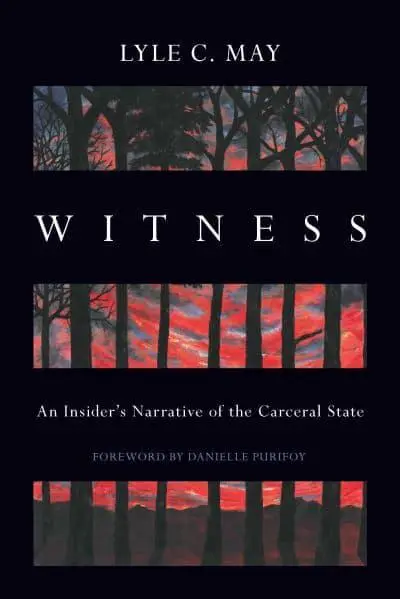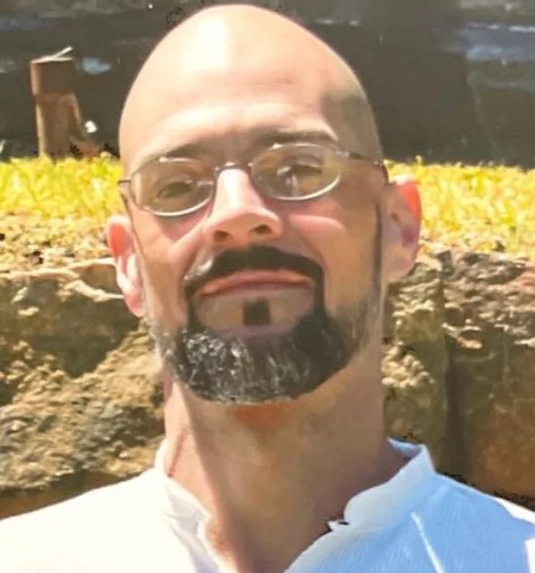 The third time one of my peers was put to death, that night after I finally fell asleep, I had a panic attack. It burst from a dark, dreamless place, vibrating my body as if the ground shook with an earthquake. In that heart-pounding moment, and there would be many of them, the sense of terror and powerlessness were overwhelming. I didn't tell anyone because in the nightmare that is death row, suffering is normal. Years after North Carolina temporarily halted executions in 2006 the panic attacks tapered off, but the fear and sense of helplessness remained. Eking out an existence became a daily battle of trying to regain power over my life, and defeating the fear. Sometimes I even won.
The third time one of my peers was put to death, that night after I finally fell asleep, I had a panic attack. It burst from a dark, dreamless place, vibrating my body as if the ground shook with an earthquake. In that heart-pounding moment, and there would be many of them, the sense of terror and powerlessness were overwhelming. I didn't tell anyone because in the nightmare that is death row, suffering is normal. Years after North Carolina temporarily halted executions in 2006 the panic attacks tapered off, but the fear and sense of helplessness remained. Eking out an existence became a daily battle of trying to regain power over my life, and defeating the fear. Sometimes I even won.
After studying criminology and criminal law, I began writing as a way of analyzing my experiences within the penal environment. Many of the concepts I discovered in textbooks and academic articles were illustrated throughout the prison system, but just as often they were refuted in our struggle to live. I became very aware of the common myths and misconceptions surrounding confinement, executions and the criminal legal system. The politics and policies that created the American carceral state, and were sold to the public as 'justice', were not abstractions spun by well-meaning lawmakers. I experienced their cruelty as a teenager in solitary confinement, listening as another adolescent was beaten by correctional staff. I was torn apart by them every time my parents came to visit and were prevented from hugging me by a thick pane of plexiglass and metal bars. I saw them unravel with every exoneration. I witnessed their cold calculation each time one of my friends was taken off of the cell block to be executed.
I wrote about these experiences and circumstances because it helped me absorb their impact and diffuse it, but also because the public had to know the truth. They needed to understand their steady consumption of crime dramas and mainstream crime reporting distorted and inhibited their ability to address public safety. I wanted them to see what I have seen growing up on death row.
Witness: An Insider's Narrative of the Carceral State is the culmination of that writing. A non-fiction narrative book that presents experience and educated analysis as a form of expertise, Witness is critical reporting from within the criminal legal system that challenges tough-on-crime rhetoric and exposes it as a failed ideology waging a war on the poor and marginalized.
Before Witness was an idea for a book, it existed as several essays, articles and lectures, some of which were previously published in outlets such as Scalawag Magazine, America Magazine, Copper Nickel and Meal Mag. These essays are sometimes deeply personal experiences with capital punishment, such as 'Learning to Die'. Others dissect policies, as in 'Life Without Parole is a Silent Execution', or expose dysfunctional, violent prisons as in 'Draconian Ideals' (formerly titled 'Measures Meant to Make NC Prisons Safer Do the Opposite'). Rather than simply describe how the carceral state is experienced from the inside, Witness draws from a deep well of resistance journalism, a form of reporting that challenges the 'tough on crime' narrative with experience and criminological scholarship. This type of journalism, however, comes with an inherent risk, as described in 'On Retaliation Against Incarcerated Writers' and 'A Modernized Streamlined Incarceration Experience' New Prisons Technology Surveils Life on Both Sides of the Wall.' These are just some of the broad selection of writing that is equal parts policy impact, analysis and political activism, combined with the insider knowledge of those society has thrown away. Importantly, there are also researched criminological lectures that were designed for and given in undergraduate and graduate classrooms.
One such classroom lecture occurred in November 2021, at the University of Oxford. Professor Carolyn Hoyle of Oxford's Death Penalty Research Unit invited me to speak with her Master’s students and discuss, amongst other things, death row phenomenon. The international arbiter that capital punishment is cruel and inhumane, death row phenomenon refers to prolonged confinement on death row as an extension of the criminal legal process, under harsh conditions (usually, but not always, in solitary confinement), and the psychological trauma that results. One of the many symptoms of death row phenomenon is panic attacks. Our talk occurred over the phone and, like most classroom speaking engagements, evolved into an open Q&A about life on death row that contextualized many of the concepts the students had read and studied. Chapter Four of Witness covers death row phenomenon at length.
A friend of mine in Professor Hoyle's class suggested I contact Haymarket Books with a proposal for an anthology of my writing. Amber Caron, an instructor at Utah State University and my writing mentor, helped me get the manuscript ready for submission. It didn't take long for Haymarket to respond that they would publish Witness: An Insider's Narrative of the Carceral State.
I knew nothing about publishing a book, especially not from prison. I assumed it would be tricky because past experience with publishing individual articles meant relying on snail mail to send and receive drafts, as well as friends on the outside who would type up my writing. I soon discovered publishing a book entailed a lot more than submitting the original manuscript. The editor asked me to write some additional chapters to round out the subject matter. I wrote these by hand, carbon copying and mailing them to Amber, who typed and sent the new chapters to the editor. During this process, North Carolina's death row prisoners received access to tablets. Although the tablets had limited capabilities and no internet access, having one enabled me to instantly address revisions and send them, at a cost, through the GTL GettingOut e-messaging app. Though this process might have seemed unwieldy and expensive to someone accustomed to using a computer, email and high-speed internet, it significantly sped up my ability to make necessary changes to subsequent drafts and to communicate with the editor. The revision process could be tedious at times, but it was absolutely necessary for perfecting the prose. Eventually, Witness grew stronger and more robust, with thirty-one chapters divided into five sections:
1) State of Violence: Capital Punishment and Death Row
2) Carceral State: Life Imprisonment
3) Culture of Control: Challenging the Narrative
4) Witness: Advocacy and Abolition
5) The Fury of Resistance
In addition to topical chapters, each section includes interviews with activists and abolitionists working hard from the outside to combat mass incarceration.
Witness is an act of resistance, one that I suspect will anger prison officials, much like some of its chapters did as independently published articles. Retaliation is the risk faced by all incarcerated journalists though. Pushing back against the half truths of constructed penal narratives is like challenging any authoritarian structure—this is especially true when human and constitutional rights in prison are optional, or at least predicated on partisan courts unwilling to acknowledge them. Some books convey expert knowledge of a particular field, some illustrate experience, while others upset the natural order of things and are defiant. Witness does all of this through proximity and an unflinching willingness to pull back the curtain on the executioners and anyone who props them up. 'Justice' is doublespeak for torch-bearing mobs, but Witness stands fearless in the face of their hypocrisy, drawing power from experience and giving voice to the suffering of the forsaken.
 |
Lyle C. May is a journalist incarcerated on North Carolina’s death row. His new book Witness: An Insider's Narrative of the Carceral State is published Haymarket Books. To set up an event with the author contact: rory@haymarketbooks.org or lylecmay@gmail.com |
Share:
